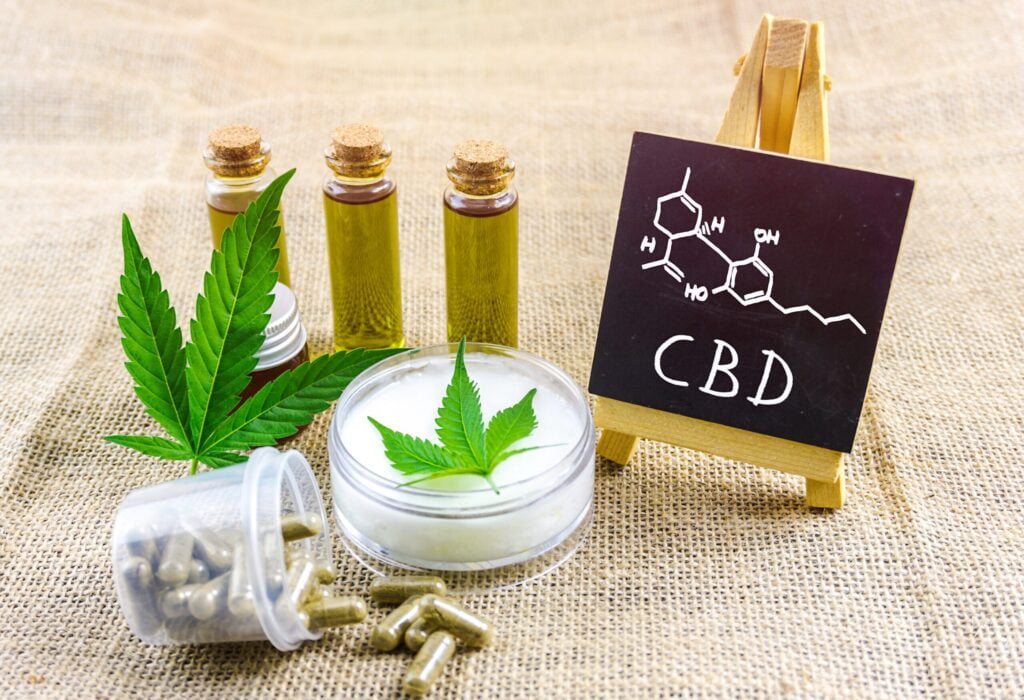In recent years, CBD, short for cannabidiol, has emerged as a frontrunner in the world of natural health remedies. The CBD industry is rapidly expanding, offering an impressive array of products from the best CBD cream to gummies, tinctures, and vape oils. Amidst the whirlwind of this new health phenomenon, many people are keen to know more about CBD, its benefits, and its potential applications in promoting health and wellness. This article will unravel the mystery surrounding this rising star of natural health remedies.
What is CBD?
Cannabidiol, or CBD, is a chemical compound found in the Cannabis Sativa plant. Unlike its more famous cousin, tetrahydrocannabinol (THC), CBD does not have psychoactive properties and hence does not produce the ‘high’ often associated with marijuana use. CBD is extracted from hemp, a type of cannabis plant that is naturally low in THC and high in CBD. This compound is then used to manufacture a wide variety of products, from oils to edibles and topical creams.
The Science Behind CBD
Researchers have been actively studying CBD and its effects on the human body. CBD interacts with our body’s endocannabinoid system (ECS), a complex cell-signaling system responsible for maintaining homeostasis, or balance, in our bodies. The ECS regulates a range of functions, including mood, sleep, appetite, and immune response.
CBD does not bind directly with the endocannabinoid receptors but instead influences the ECS to produce more of its endocannabinoids. This indirect action is believed to explain why CBD has potential therapeutic effects without the psychoactive impact seen with THC.
CBD and Skin Health

A relatively recent development in the field of CBD research revolves around its potential benefits for skin health. One of the reasons behind CBD’s effectiveness as a skincare ingredient lies in its purported anti-inflammatory properties. Several studies indicate that CBD might help alleviate certain skin conditions, such as eczema and psoriasis, by reducing inflammation and relieving discomfort.
Moreover, some research points to CBD’s potential anti-acne properties. Acne is a skin condition partly caused by inflammation and overworked sebaceous glands in the body. According to some researchers, CBD may help reduce the production of sebum, an oily substance that, in excessive amounts, can lead to acne.
Beyond these specific conditions, the topical application of CBD (in the form of creams, lotions, and oils) might help improve overall skin health. By interacting with the endocannabinoid system in the skin, CBD could potentially promote skin cell regeneration, improve skin tone and texture, and reduce the signs of aging.
CBD for Sleep and Insomnia
A good night’s sleep is crucial for overall health, and CBD is gaining attention as a potential natural remedy for sleep disorders like insomnia. Some research suggests that CBD might help improve sleep by addressing the root causes of insomnia.
Many factors can cause people to experience sleeplessness, including physical conditions like chronic pain and mental health disorders like anxiety and depression. As mentioned previously, CBD may have therapeutic potential for these conditions, thereby indirectly improving sleep. In addition, preliminary research suggests that CBD might directly affect sleep cycles, promoting increased duration and improved quality of sleep.
Other Potential Health Benefits of CBD
Various scientific studies and anecdotal evidence suggest that CBD can have multiple health benefits. Here are a few of the most significant ones:
Pain Relief
Perhaps one of the most well-known uses of CBD is for pain relief. Several studies have shown that CBD might have anti-inflammatory properties, which can help in managing chronic pain conditions such as arthritis and multiple sclerosis.
Anxiety and Depression Management
CBD is being increasingly used as a natural remedy for mental health issues. Some research suggests that CBD can interact with serotonin receptors in the brain, which can help regulate mood and social behavior. As such, it may be beneficial for managing anxiety and depression.
Neuroprotection
Preliminary research indicates that CBD might have neuroprotective properties. Studies suggest that it could be beneficial in treating neurological disorders like epilepsy and multiple sclerosis. CBD has also been studied for its potential role in slowing the progression of Alzheimer’s disease.
Heart Health
There is growing interest in the potential benefits of CBD for heart health. Some studies indicate that CBD might be able to lower high blood pressure, a key risk factor for heart disease. Researchers suggest that the stress and anxiety-reducing properties of CBD are responsible for its ability to help lower blood pressure.
CBD: Not a One-Size-Fits-All Solution

Despite the many potential advantages of cannabidiol, it’s essential to note that its effects can vary greatly among different individuals. Just as our bodies respond differently to various foods and medications, our reactions to CBD can also be unique. Factors such as age, gender, body weight, metabolism, and the health condition being treated can all influence how a person might react to CBD.
For instance, while some people may find that it helps improve their sleep, others might not notice any significant changes. Some people might experience relief from chronic pain with only a small dose of cannabidiol, while others might require a higher dose or not find it effective at all. The same holds true for potential side effects, which can range from nonexistent to significant, depending on the individual.
Because of this variability, it’s crucial for individuals to start with a low dose of CBD and gradually increase it until the desired effects are achieved. This method, commonly known as “start low and go slow,” can help minimize potential side effects and ensure that individuals find the dose that works best for them.
The Legal Landscape of CBD
The legality of CBD products is a complex issue, primarily because laws vary greatly around the world and even within the same country. In the United States, for instance, the 2018 Farm Bill federally legalized hemp and hemp-derived products, including CBD, as long as they contain no more than 0.3% THC. However, individual states can impose their restrictions, resulting in a patchwork of laws that can be challenging to navigate.
In many other parts of the world, cannabidiol’s legal status can range from fully legal to completely illegal or somewhere in between. It’s essential for potential CBD users to understand the laws in their area before purchasing or using any CBD products. Moreover, even in regions where cannabidiol is legal, its use in certain professional settings (such as competitive sports) might still be restricted. It is always recommended to consult legal counsel and professional guidelines as needed.
Conclusion: The Future of CBD in Natural Health Remedies
The landscape of natural health remedies is continuously evolving, and CBD has certainly made its mark. From the best CBD creams to oils, edibles, and more, this non-psychoactive compound of the Cannabis Sativa plant offers a myriad of potential benefits backed by a growing body of scientific and anecdotal evidence.
However, while the potential health benefits of CBD are exciting, it’s important to remember that research in this area is ongoing. Future studies will help us better understand the full spectrum of CBD’s potential health impacts and more clearly define its role in the world of natural health remedies. Until then, consumers should approach CBD products with an informed and balanced perspective, keeping in mind the importance of quality, purity, and the guidance of healthcare professionals.









